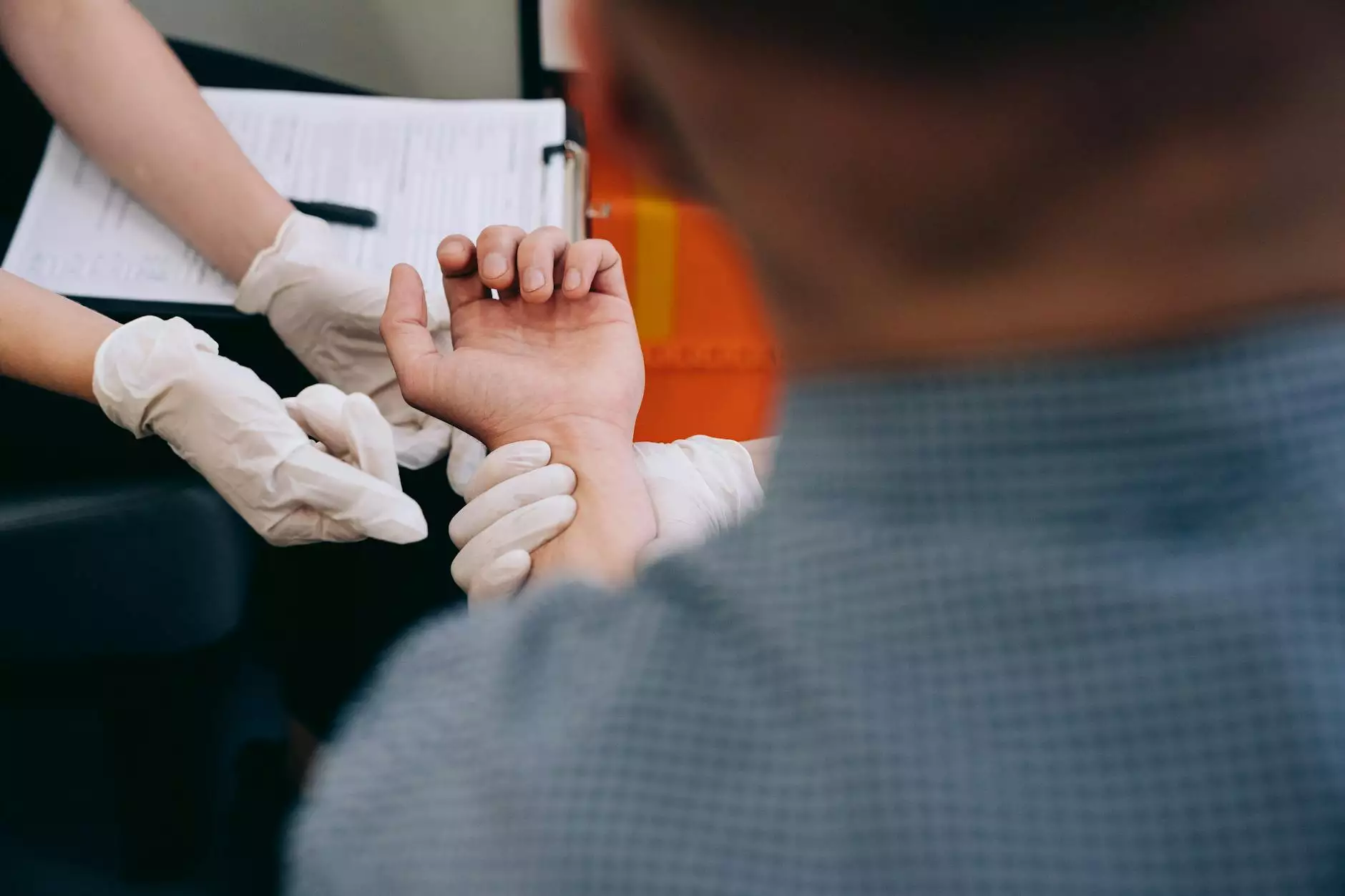The Essential Role of a Lung Doctor in Modern Healthcare

The health of our lungs is crucial to our overall well-being. Lung doctors, also known as pulmonologists, are specialists trained to diagnose and treat conditions affecting the lungs and respiratory system. In this comprehensive article, we will explore the roles and responsibilities of lung doctors, the common conditions they treat, and the importance of lung health in the context of general health and physical therapy.
Understanding the Role of a Lung Doctor
A lung doctor plays a vital role in the healthcare system. Their primary responsibility is to manage and treat diseases that affect the lungs and the respiratory tract. This includes a wide array of conditions, from asthma and chronic obstructive pulmonary disease (COPD) to lung cancer and pulmonary infections.
Key Responsibilities of a Lung Doctor
- Diagnosis: Identifying respiratory conditions through a variety of tests, including lung function tests, imaging studies, and biopsies.
- Treatment: Developing treatment plans that may include medications, therapies, or surgical interventions.
- Patient Education: Teaching patients about their conditions, treatment options, and lifestyle changes to improve lung health.
- Research: Engaging in clinical research to develop new treatment modalities and improve existing therapies.
Common Conditions Treated by Lung Doctors
Lung doctors are specialists who deal with a multitude of conditions, ensuring that patients receive comprehensive care. Below, we delve into some of the most common conditions for which patients seek the expertise of a lung doctor:
1. Asthma
Asthma is a chronic condition that causes inflammation and narrowing of the airways, leading to difficulty in breathing. Lung doctors formulate personalized treatment plans, often including inhalers and medications to manage symptoms and prevent attacks.
2. Chronic Obstructive Pulmonary Disease (COPD)
COPD is a progressive disease that obstructs airflow from the lungs. It is typically caused by long-term exposure to irritants, most commonly cigarette smoke. Lung doctors provide essential management strategies, including breathing exercises, medication, and lifestyle recommendations.
3. Lung Cancer
Lung cancer is one of the leading causes of cancer-related deaths worldwide. The role of a lung doctor in diagnosing and treating this condition is critical. They work closely with oncologists to determine the best course of treatment, which may involve surgery, chemotherapy, or radiation.
4. Pneumonia
Pneumonia is an infection that inflames the air sacs in one or both lungs. A lung doctor specializes in assessing the severity of pneumonia and providing appropriate treatment, which can include antibiotics and hospital care for severe cases.
5. Interstitial Lung Disease
This group of diseases involves inflammation and scarring of the lung tissue. Lung doctors focus on identifying the cause, whether it be autoimmune disorders, environmental factors, or industry-related exposure, and create a tailored treatment plan.
The Importance of Regular Lung Health Check-Ups
Regular check-ups with a lung doctor can significantly impact an individual’s health. Early detection of lung-related issues can lead to better outcomes and can sometimes prevent serious complications. Here are some key reasons for scheduling regular appointments:
1. Early Detection of Conditions
Many lung diseases develop slowly and may not present symptoms until they are at an advanced stage. Regular check-ups can catch these conditions early, making treatment more effective.
2. Managing Chronic Conditions
For those suffering from chronic respiratory diseases, continuous monitoring by a lung doctor ensures that management strategies remain effective and are adjusted as necessary.
3. Lifestyle Modifications
Lung doctors can provide insight into lifestyle changes that can greatly enhance respiratory health, including:
- Smoking Cessation Programs: Helping patients quit smoking and avoid secondhand smoke.
- Exercise Recommendations: Guiding patients in developing pulmonary rehabilitation strategies that include safe exercise regimens.
- Nutritional Advice: Understanding the impact of diet on respiratory health, providing tips for a lung-healthy diet.
How Lung Health Impacts Overall Wellness
The lungs are essential organs that play a pivotal role in overall health. Optimal lung function is vital not just for breathing, but also for maintaining a healthy lifestyle. Let’s explore how lung health correlates with general wellness.
1. Oxygen Supply to the Body
The primary function of the lungs is gas exchange – delivering oxygen to the blood and removing carbon dioxide. Poor lung health can lead to hypoxia, where the body’s tissues do not receive adequate oxygen, resulting in fatigue and reduced physical performance.
2. Physical Activity and Fitness
Healthy lungs allow for improved physical activity levels, which is important for cardiovascular health, mental well-being, and strength. Lung doctors often emphasize the integration of aerobic exercises to bolster lung capacity.
3. Mental Health Connection
There exists a strong link between physical health and mental well-being. Chronic respiratory issues can lead to anxiety and depression. By managing lung health effectively, a lung doctor can help patients maintain better mental health, promoting overall wellness.
Integrating Lung Health in Physical Therapy
Lung health is an important aspect of physical therapy, especially for patients recovering from surgeries, illnesses, or injuries that affect lung capacity and function. Here’s how lung doctors and physical therapists collaborate to enhance lung health:
1. Breathing Exercises
Physical therapists may incorporate specific breathing techniques that improve lung function. Techniques such as diaphragmatic breathing and pursed-lip breathing are vital for enhancing pulmonary efficiency.
2. Posture and Mobility
Good posture can optimize lung expansion, and therapists help patients maintain proper alignment during daily activities and exercises. This is especially relevant in individuals recovering from respiratory diseases.
3. Tailored Rehabilitation Programs
Those with chronic lung conditions may benefit from pulmonary rehab programs tailored to their specific needs, integrating exercises that promote endurance while ensuring safety in exertion levels.
Conclusion
In summary, lung doctors play a pivotal role in maintaining respiratory health, which is essential to overall well-being. Their expertise not only aids in the identification and treatment of various pulmonary conditions but also helps patients lead healthier lives through education about lifestyle changes, ongoing management of chronic conditions, and integration with physical therapy. Understanding and prioritizing lung health is vital, and engaging with a lung doctor as part of one's healthcare team can result in significant improvements in quality of life.
If you have any respiratory concerns or need specialized care, do not hesitate to reach out to a reputable lung doctor or healthcare facility. Your lungs deserve exceptional care!









